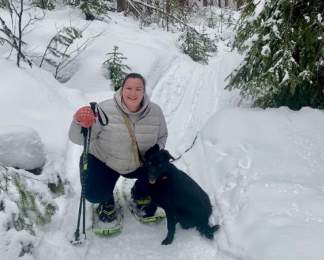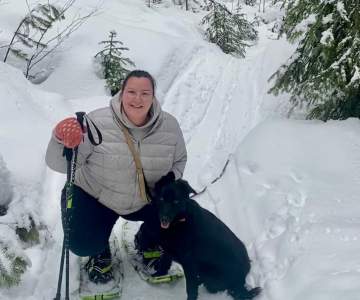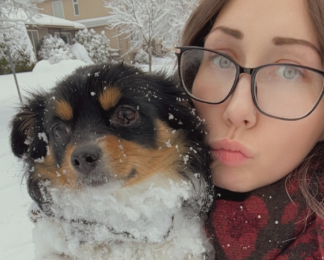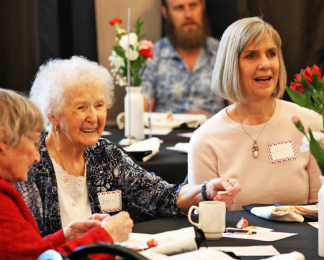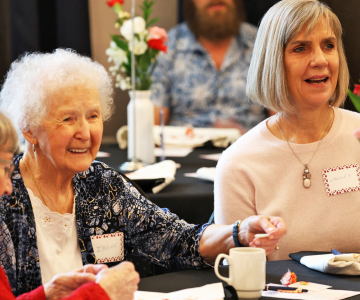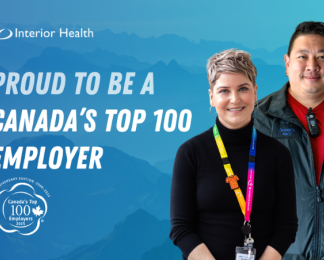When Harm Reduction Coordinator Lesley Coates received the latest quarterly report on provincial overdose statistics, it confirmed what she and colleagues had been hearing anecdotally from the community for weeks. They had seen a steady, yet slow decline in overdose deaths over the last two years (139 in 2019, compared to 233 in 2018). The first three months of 2020 were painting a different picture.
Between January and March 2020, 46 people in the IH region lost their lives because of an overdose.
B.C. has two public health emergencies intersecting: The ongoing public health emergency declared in April 2016 due to increasing opioid overdoses and deaths, and the COVID-19 public health emergency declared on March 17, 2020.
Harm Reduction Coordinators, Medical Health Officers and Mental Health & Substance Use (MHSU) staff across Interior Health have the unique challenge of responding to these concurrent health crises.
“Our team has been fielding calls from a number of harm reduction agencies and community partners in several communities over the last few weeks. Many regions are reporting an increase in overdose activity."
Harm Reduction Coordinator Lesley Coates
“We have an increasingly unpredictable drug supply right now, so
taking steps to prevent overdose is very important.”
The Mental Health and Substance Use Network has been working with program directors across the region to assess the impact the COVID-19 response has had on overdose response and make adjustments where necessary.
“We want to make sure that the improvements we've made through targeted interventions are not lost. For example, we need to ensure Take Home Naloxone kits and other harm reduction supplies continue to be available, and that there are no new barriers to accessing Opioid Agonist Treatments as a result of COVID-19,” says Substance Use Director Corinne Dolman. “There is no doubt that it has been a particularly difficult period of time for many people, including people who use drugs, and some have been significantly impacted by this pandemic.”
“Are the important measures we are taking to flatten the curve impacting overdose risk? Certainly components of the COVID-19 response may change how and where illicit drugs are made; physical distancing may separate us from important supports and services; and people may become apprehensive to seek or offer care due to fear of COVID-19 infection. At the same time, people are more stressed and many have lost jobs. There is a real risk for mental health issues to be exacerbated, and for alcohol and drug consumption to increase,” says Medical Health Officer Dr. Karin Goodison.
According to the B.C. Centre for Substance Use, COVID-19 is a virus that can cause a respiratory infection and other health problems, and Fentanyl and other opioids can slow a person's breathing rate, so COVID-19 may increase the risk of overdose death from opioids.
In these complex times, Dr. Goodison says social connections can and should continue. Essential services, such as drug checking, overdose prevention sites and supervised consumption services, Naloxone distribution and access to treatment and support continue to be available, but in some cases these services may look slightly different.
“We can, and we will, continue to move forward to address both of these
Dr. Karin Goodison
public health emergencies."
"We will continue to support people to stay safe whether they are keeping their distance when exercising, or using drugs with a buddy or at an overdose prevention site. In fact, we just opened our new overdose prevention service in Vernon with appropriate COVID-19 prevention measures in place.”
Interior Health urges anyone who uses drugs to take steps to prevent overdose.
How to prevent overdose and use drugs safer during COVID-19:
- Buddy up when you are using. COVID-19 is passed by droplets. Stay two metres (6.5 ft.) from your buddy to avoid passing the virus. Using with a buddy is safer than using alone.
- If self-isolating, find your buddies who can bring you food, harm reduction supplies, medicine, and substances so that you can stay well. You can also be a buddy to those who may need extra support. Check in on your buddies regularly.
- Continue to use overdose prevention services, supervised consumption sites and supportive housing overdose prevention sites. Thorough cleaning that takes place at these sites will help reduce the spread of infection.
- Continue to use drug checking services. For locations visit: www.drugchecking.ca. Call ahead as hours may have changed.
- Don’t mix different drugs (including pharmaceutical medications, street drugs, and alcohol).
- Use less and pace yourself. Do testers to check strength – take a small sample of a drug before taking your usual dosage.
- Carry a Naloxone kit and know how to use it. A list of locations to get a kit can be found on the Toward the Heart.
- Recognize the signs of an overdose: slow or no breathing, gurgling or gasping, lips/fingertips turning blue, difficult to awaken, or non-responsive.
- If someone is experiencing an overdose or is witnessing an overdose, follow overdose response steps outlined by the BC Centre for Disease Control, and call 9-1-1 immediately.
- Consider treatment options – talk with your health-care provider or contact one of our Mental Health and Substance Use offices, which offer a full range of services to improve the health and well-being of people with substance use problems.
Want to learn more? Check out these resources:
- Overdose prevention and COVID-19
- Supervised Consumption Services in Kelowna and Kamloops
- Overdose Prevention Site at the Vernon Downtown Primary Care Centre
- Overdose Prevention Site in Nelson
- Interior Health overdose emergency web page
- Interior Health's Mental Health and Substance Use Centres


